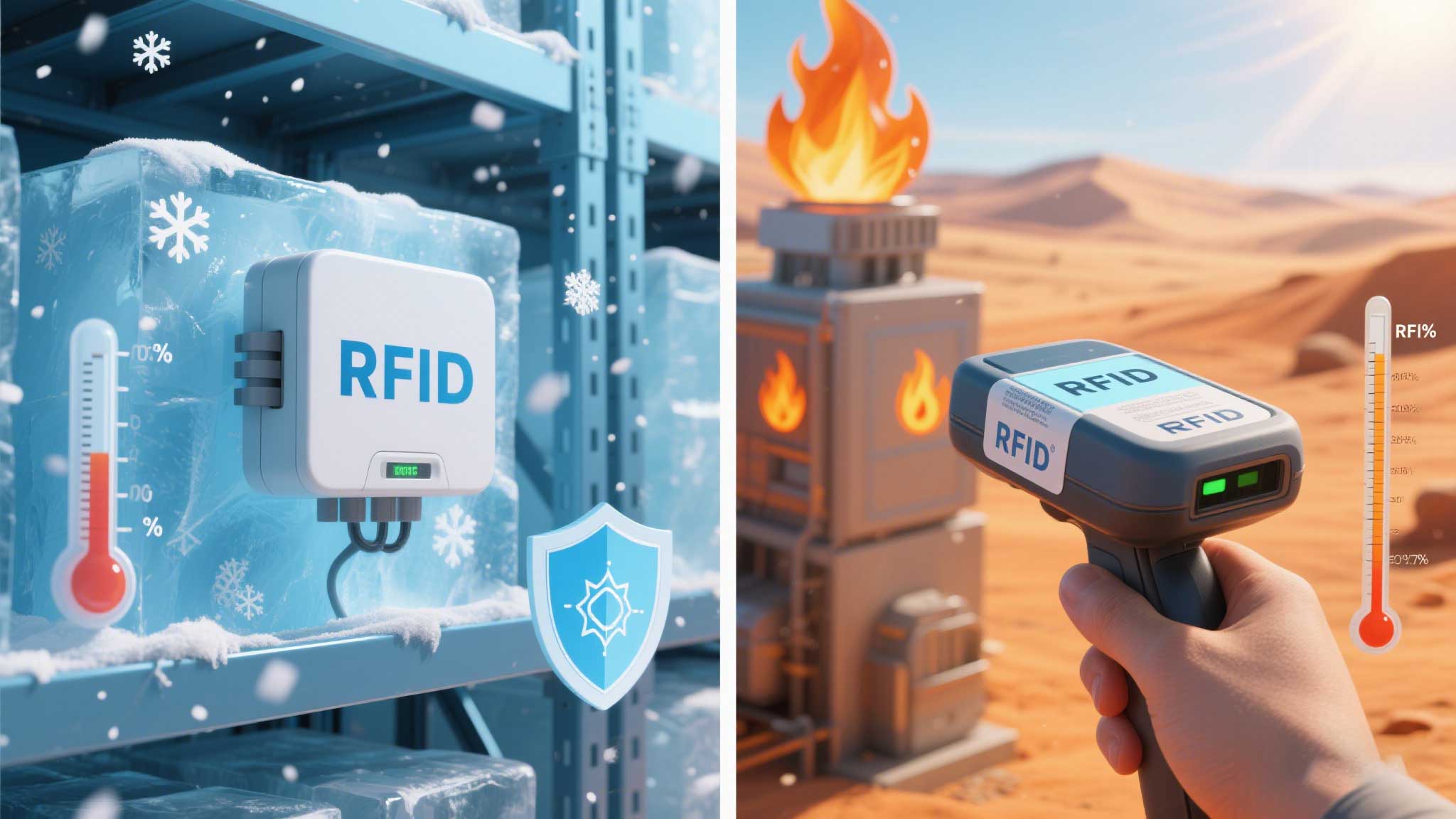What is the primary function of an RFID tag?
632Discover the key functions of RFID tags: from asset tracking to security. Learn how they automate identification, enhance supply chains, and enable IoT connectivity.
MoreAll RFID Product
Fixed RFID Reader deployed in environments like freezer warehouses, desert construction sites, or foundries face a critical challenge: maintaining performance under extreme temperatures. While consumer-grade devices fail in harsh conditions, industrial RFID readers are engineered to operate reliably from -40°F to 185°F (-40°C to 85°C). Here’s how they achieve this resilience—and what to prioritize when selecting a system.

Look for:
Cykeo’s IndustrialMax series combines silicone-gel-sealed electronics and wide-temperature UHF antennas, tested in environments from Arctic logistics hubs to tropical ports. Their readers deliver 99.9% uptime even during thermal cycling stress tests.
Discover the key functions of RFID tags: from asset tracking to security. Learn how they automate identification, enhance supply chains, and enable IoT connectivity.
MoreThis article provides a comprehensive overview of livestock RFID readers, including how they work, key features, usage scenarios, and buying tips—helping users improve animal identification efficiency and optimize farm operations.
MoreDiscover how RFID technology transforms healthcare facility management. Learn how UHF RFID systems, mobile readers, and smart tagging improve asset tracking, patient safety, and workflow efficiency.
MoreRFID tagging systems, leveraging advanced radio frequency identification technology, offer an accurate, efficient, and intelligent management solution,
More